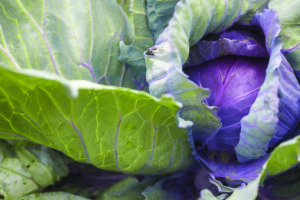
By Will Bulsiewicz, MD MSCI, Lowcountry Gastroenterology, Mt. Pleasant, S.C.
In our fast-paced world, it’s amazing how quickly a brilliant idea can become marginalized to nonexistence. CDs, Blockbuster…Tickle Me Elmo, I’m looking straight at you. In medicine, the pace of research is even faster. Cutting-edge care today may be outdated in 10 years, and the few ideas that survive the gauntlet of time must be forward thinking and wise.
What if I told you that the best health advice that I give my patients is literally 2,500 years old? It makes me sound like someone who uses an abacus to do his taxes, yet when I introduce this concept to my patients, I’m often told that I’m “progressive,” “open-minded” or even “new age.” I gladly accept those compliments, but the real credit goes to Hippocrates, the Father of Western Medicine, who said,
“Let food be thy medicine and medicine be thy food.”
The concept of “Food is Medicine” isn’t new at all; it just fell so hard off our collective radar that we forgot it even existed. Instead, we were hypnotized by the power of pharmaceuticals and the convenience of taking a pill to improve our health.
Penicillin, the first antibiotic, was put into widespread use during World War II, and immediately lives were saved. Over the years, drug development has improved treatment for infections, heart disease, cancer and other conditions. Our life expectancy has increased by 15 years since the advent of penicillin, and it continues to go up.
But our increasing dependence on medications has consequences. There are at least 2.2 million serious adverse effects from medicine each year, and more than 100,000 deaths, according to research published in the Journal of the American Medical Association. Further, our over-reliance on medications has led to a health care system designed to treat disease but not prevent it. So while we may live longer, our later years will be increasingly stricken with debilitating disease and morbidity.
The solution is to accept this one simple yet powerful fact: The single greatest determinant of your health will be the foods you choose to eat.
On average, we eat about 3 pounds of food per day. Tracing out the math, that’s about a thousand pounds of food per year, or 78,000 pounds during an average lifetime. And we think that a few milligrams of medicine are going to undo the damage.
Alternatively, chocolate, blueberries, nuts and coffee all prevent diabetes. Oats, salmon, beans and red wine can improve your cholesterol. Kale, beets, and maple syrup fuel the brain and prevent Alzheimer’s. The list goes on and on, and this is why “Food is Medicine.”
When it comes to healthy eating, it starts with plant-based foods. Organically grown plants are densely packed with health-promoting nutrients, including vitamins, minerals, antioxidants, gut-nourishing fiber and phytochemicals.
They also lack the harmful components of processed foods: refined sugars, artificial flavors and colors, MSG (monosodium glutamate), high-fructose corn syrup or synthetic trans fats just to name a few. In short, organic plants have all the good stuff and little to none of the bad stuff.
My personal favorites are the phytochemicals. These are the naturally occurring compounds in plants with varying health promoting qualities: preventing cancer, optimizing the immune system, or healing blood vessels just to name a few.
So far, there are more than 120 drugs derived from plant compounds, including aspirin, morphine and digoxin. But that is a fairly small number considering there are more than 5,000 phytochemicals that we’ve identified (so far), most of which we know very little about. Beta-carotene, caffeine and resveratrol are just a few examples of the phytochemicals we have started to study.
Ninety percent of us aren’t consuming the minimum goal of five servings of plants per day. Consider making it a mission to not just meet, but to wildly exceed this goal. Simple habits can make a difference: add berries to your oatmeal, carrots and hummus as a snack, and a big ole’ salad with every dinner.
Probably my favorite way to get more plant foods is with a smoothie. My base recipe is one or two bananas, a couple handfuls of kale or spinach, and some frozen berries. Bananas make it creamy and berries make it sweet, so I adjust those as needed to make it delish. For extra credit, I’ll top it off with ground flax seeds, wheatgrass, and turmeric. Yummy in my tummy!
East Cooper Meals on Wheels believes “Food is Medicine” and is committed to providing East Cooper residents with food that fulfills this mission. As part of our program, our delicious meals are specially tailored with guidance from a nutritionist to meet the needs of seniors and those recovering from illness or injury.



